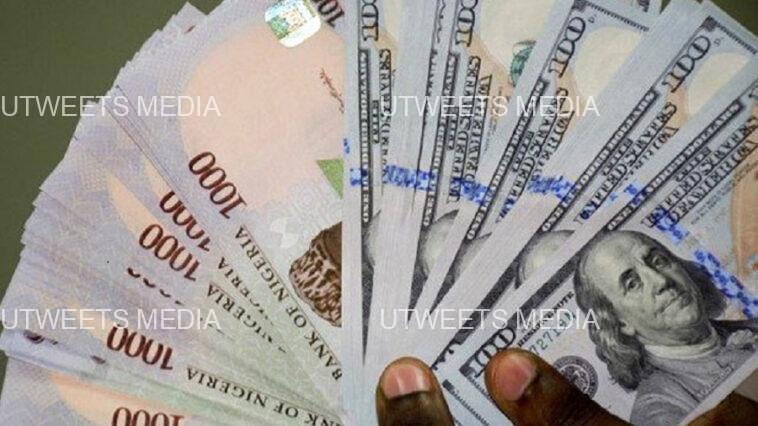The Naira extended its downward trajectory mid-week, depreciating further against the US dollar in both the parallel and official markets....CONTINUE READING THE ARTICLE FROM THE SOURCE>>>
The naira depreciated to N1,570/$1 on Wednesday from N1,565/$1 on Tuesday.
The trend shows that the naira has been on a downward spiral since Monday when it traded at N1,560/$1 in the parallel market.
A Bureau De Change (BDC) operator in Wuse Zone 4, Abuja, confirmed the price movements to Nairametrics, citing increased demand for the greenback and limited supply as key drivers of the depreciation.
Official Market Trends
In the official market, the naira also experienced a decline. It closed at N1,502.00/$1 on Monday and weakened further to N1,513.10/$1 by Tuesday.
Additionally, trading data from Tuesday showed that the currency exchanged at N1,498.78/$1 (buying) and N1,499.78/$1 (selling), reflecting continued pressure on the exchange rate.
Performance Against Other Currencies
The naira’s depreciation was not limited to the US dollar, as it also lost ground against the British pound and the euro in the parallel market. The exchange rates for these currencies over the past three days are as follows:
Date Parallel rate (GBP) Parallel rate (Euro)
10-Feb-25 N1,955.00 N1,620.00
11-Feb-25 N1,950.00 N1,595.00
12-Feb-25 N1,975.00 N1,600.00
The naira’s decline against major currencies signals sustained volatility in the foreign exchange market. Analysts suggest that while the Central Bank of Nigeria (CBN) has introduced various policies to stabilize the naira, persistent forex demand pressures, speculative trading, and concerns over liquidity continue to weigh on the local currency.
Market Outlook
Market watchers predict that the naira may face further depreciation in the short term unless there is significant intervention from the apex bank or an improvement in forex liquidity. Factors such as foreign portfolio inflows, external reserves management, and government policies will be key determinants of the currency’s future direction.
Stakeholders are calling for a more strategic approach to address the forex challenges, including boosting non-oil exports, improving forex inflows, and strengthening confidence in the financial system.
As exchange rate fluctuations persist, businesses and individuals reliant on forex transactions continue to navigate an uncertain financial landscape.
The naira lost 70% of its value against the US dollar since authorities loosened foreign exchange controls in 2023.
However, the Nigerian apex bank has enacted several forex interventions and policy measures to boost the naira’s value, such as strengthening rules for Bureau De Change operators and boosting dollar liquidity in the official market.
CBN Governor, Olayemi Cardoso, declared that there would be harsh consequences for any violations of the recently introduced Nigeria Foreign Exchange (FX) Code. He reaffirmed the Central Bank’s commitment to upholding ethical behavior and transparency in Nigeria’s foreign exchange market…Read the full content from the source


